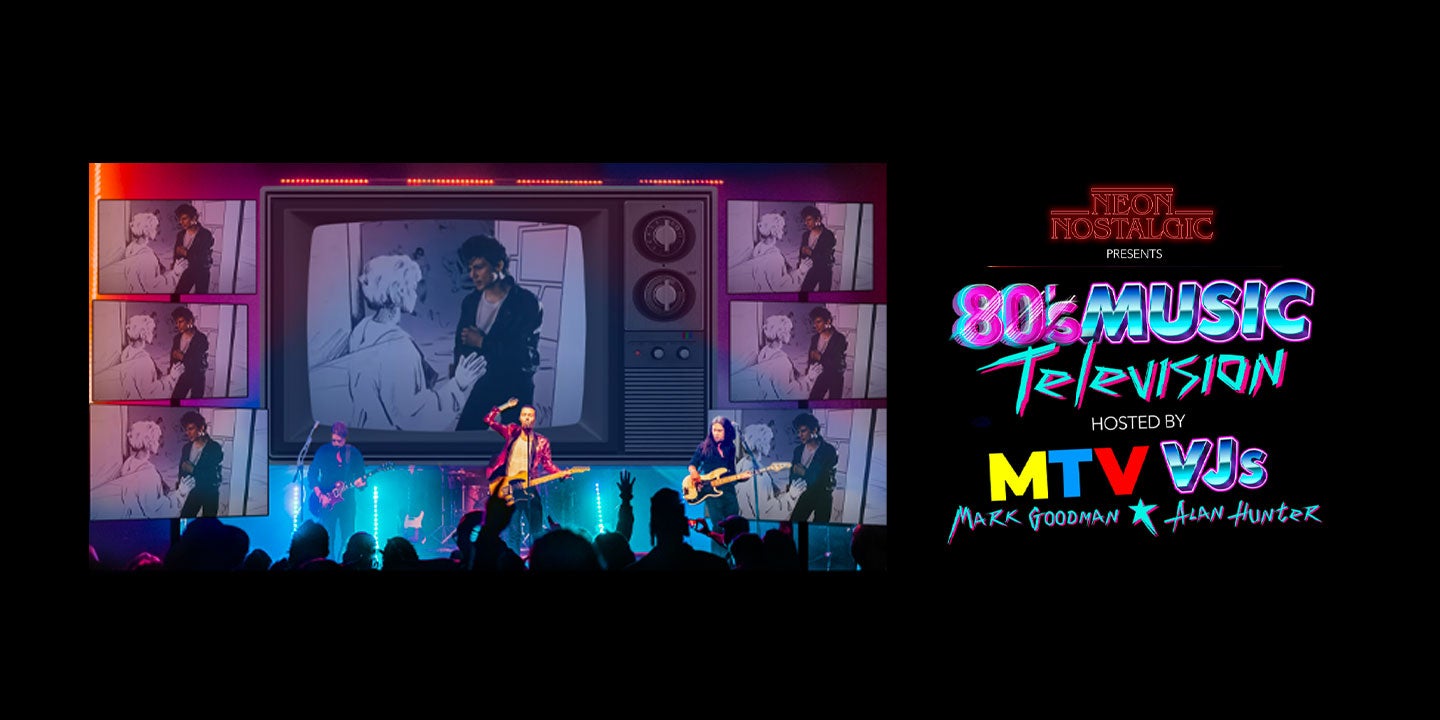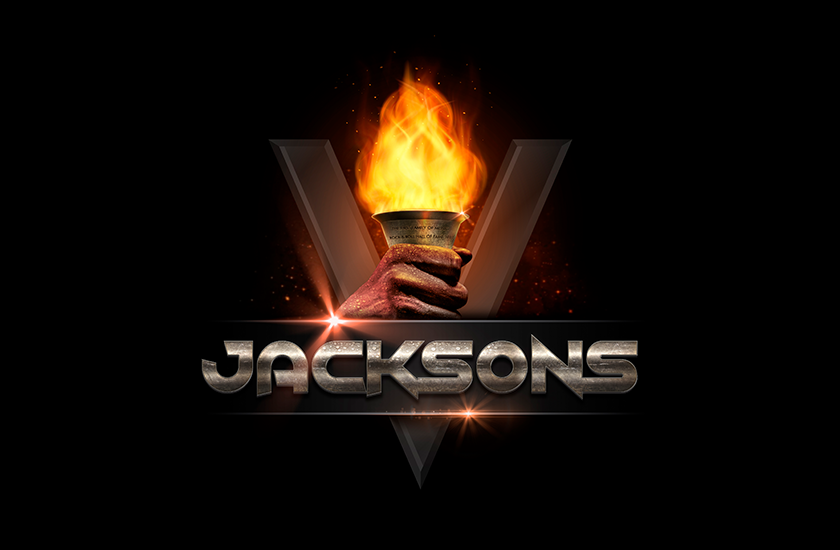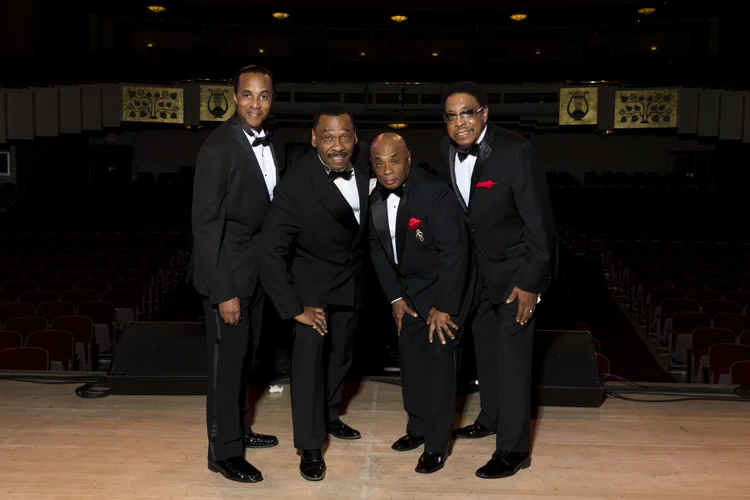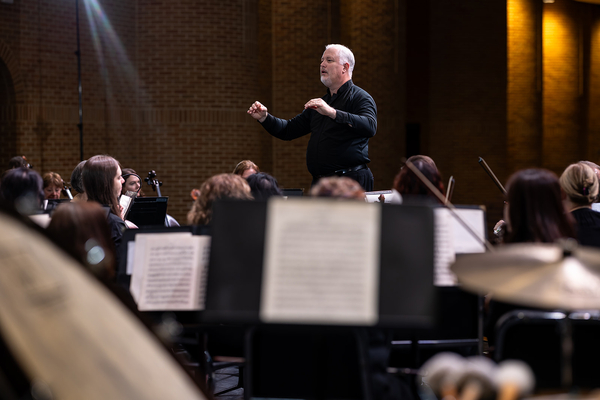March 5 finds her and Beaujour at Labyrinth Books and it is a free event which is open to the public; so what can we expect at the event?
"Tom Beaujor is a "New York Times Best Selling" author of a book called, "Nothin' But A Good Time" and he is going to have a discussion with me about my book, women in rock and feminism in general, so it should be really interesting. He is a well known music writer and not just an author who has had a lengthy career as well so it should be a great discussion. He will ask me questions, we'll talk back and forth and do a comparison and contrast between our books. I would certainly like to open it up to questions from anyone who comes and would like to know something and then I'll be happy to individually meet with people, sign their books and answer any questions that they may have been too shy to ask in front of the group. I think it is going to be a fun time; I'm going to bring my mom, she is the original "Badass" and I dedicated this book to her. So, come out and meet me and say hello to my mom (laughs)!"
The book can be found on all of the usual outlets, Amazon, Barnes & Noble, Books-A-Million, Bookshop.org and "Kat" can be found online and all social media platforms under Katherine Yeske Taylor Music Journalist.
That's it for this week! Please continue to support live and original music and until next week....ROCK ON!
This week's event listings
Allentown Presbyterian Church20 High Street Allentown
(609) 259-7289
Sat. 6:30 p.m. Jazz Vespers w/ Enoch Smith Jr.
Al's Airport Inn636 Bear Tavern Road West Trenton
(609) 883-5252
Thurs. 5 p.m. Ant Cannuli
Sat. (12 p.m.) Acoustic Brunch (5 p.m.) Jessica Stanley
Sun. 12 p.m. Sunday Acoustic Brunch w/ Jerry Monk
Mon. 5 p.m. Joe Hutchinson
Tues. 7 p.m. Mike & Laura
Wed. 7 p.m. Mark Sacco
Ancient Order of Hibernians 2419 Kuser Road Hamilton
Fri. 3 p.m. Lenten Fish Fry
Aristaeus Brewing2475C Big Oak Road Langhorne, PA
(215) 757-2337
Thurs. 7 p.m. Trivia
Arts Council of Princeton 102 Witherspoon Street Princeton
(609) 924-8777
Sun. 3 p.m. ART OF: "Contemplating Spirituality and Art"
Wed. 7 p.m. Jersey Art Meetup
Ashlynn Distillery 32 West Bridge Street Morrisville, PA
Thurs. 5 p.m. Cecil & Carl
Fri. 7 p.m. Mike Goldman
Sat. 7 p.m. Tim Schmid
Sun. 3 p.m. Cecil & Troy Cain
Wed. 6 p.m. Cara Cartney
Bill's Olde Tavern2694 Nottingham Way Hamilton
(609) 586-0192
Mon. 7 p.m. Trivia
Tues. 8 p.m. / Wed. 8 p.m. Karaoke w/ DJ Burn
Ages 21+
Bordentown CityFarnsworth Avenue Bordentown
Fri. 7 p.m. "Frightening Fridays!" Haunted History Tours. $20
Sat. 12 p.m. Bordentown Walking Tours. $20
Bowman's Tavern 1600 River Road New Hope, PA
(215) 862-2972
Thurs. 6:30 p.m. Dave Dales Trio
Fri. (5:30 p.m.) Bennett Lee (8 p.m.) Bob Egan
Sun. (12 p.m.) Bill Avayou Trio (6 p.m.) Lorenzo
Mon. 6 p.m. Soul Custody Duo
Wed. 6 p.m. Liz DuFour
Broken Goblet Brewing2500 State Road Bensalem, PA
(267) 812-5653
Thurs. 7 p.m. Mike Estabrook
Sat. 8 p.m. Author & Punisher w/ Morne & Glassing. $20, ages 18+
Bucks On Bridge25 Bridge Street Lambertville
(609) 483-2615
Fri. 6:30 p.m. Poetry Night
Tues. 5 p.m. Chess Night
Wed. 6 p.m. Trivia
Candlelight Lounge 24 Passaic Street Trenton
(609) 695-9612
Thurs. 6 p.m. Thursday Night Blues Jam. $5
Sat. 3 p.m. Mike DeMonte. $20
Cazz's Sports Bar 'N' Grille1560 Haines Road Levittown, PA
(267) 580-5469
Fri. 9:30 p.m. Karaoke w/ Paul
Chesterfield Inn633 Chesterfield-Arneytown Road Chesterfield
(609) 298-1917
Sat. 9 p.m. Blackwells Mill
Club Atlantis1858 Street Road Bensalem, PA
(215) 944-1777
Sat. 9 p.m. DJ Robbie Tronco
All Events Ages 21+ and Dress to Impress
Clubhouse at Mountain View (The Patio)
850 Bear Tavern Road Ewing
(609) 538-0808
Thurs. 7 p.m. Karaoke
Fri. 6:30 p.m. After Dark
Continental Tavern2 North Main Street Yardley, PA
(215) 493-9191
Sat. 8 p.m. Acoustic Brew
Cooper's Riverview 50 Riverview Plaza Trenton
(609) 393-7300
Thurs. 7 p.m. Kindred Spirit
Fri. 5 p.m. Happy Hour (7 p.m.) Kickin' Nash / DJ John Rossi
Sat. 7 p.m. Grateful Dead Tribute w/ "Cosmic Jerry Band"
Crossing Vineyard and Winery1853 Wrightstown Road Washington Crossing, PA
(215) 493-6500
Thurs. 7 p.m. Trivia Night
Sat. 2 p.m. Meg Russell
Sun. 2 p.m. Kim & Chuck Duo
Curran’s Irish Inn1909 Bristol Pike Bensalem, PA
(215) 245-1800
Thurs. 7 p.m. Music Bingo
Sat. 8 p.m. SoulShine
Mon. 7:30 p.m. Quizzo
Dacey's Pub 215 West Philadelphia Avenue Morrisville, PA
(215) 295-4838
Fri. 6:30 p.m. Acoustic Music Night
Wed. 8 p.m. Quizzo
Dadz Bar and Grill 744 Main Street Lumberton
(609)267-4344
Thurs. 7 p.m. Open Mic w/ Jimmy Mannix
Tues. 7 p.m. Open Mic
Wed. 7 p.m. Loose Bandits
Dharma Bums 4935 River Road New Hope, PA
(215) 663-2867
Thurs. 8 p.m. Rachel Hill
Fri. 8 p.m. Riko and Whaler Collective. $10 (advance)
Sat. 8 p.m. Boris Garcia. $15 (advance)
Sun. 6 p.m. Goldsprints. $20
Wed. 7 p.m. DBums Hootenanny: An Open Mic of Music, Comedy & Spoken Word Hosted by Michael Henry Robert
Dockside Bensalem 3330 Hulmeville Road Bensalem, PA
(267) 520-7184
Sat. 10 a.m. Taylor Swift Brunch
Eddington House Bensalem2813 Hulmeville Road, Bensalem, PA
(215) 639-1220
Fri. 8:30 p.m. Phase 3
Sat. 8:30 p.m. August
Sun. 3 p.m. Ty Kingsley
Mon. 5:30 p.m. "Family Fun Night" w/ Amazing Balloon Creations by Kelsi-Joe
El Barrio Cantina & Tequila Bar1470 Buck Road Southampton, PA
(267) 685-0725
Fri. 8 p.m. Keith Ragnar Cowgill
Escape Resort, Restaurant & Bar 120 Pheasant Run Road Newtown, PA
Tues. 6 p.m. Karaoke
Flying Pig Tavern & Tap 167 US-Route 130 North Bordentown
(609) 899-7447
Thurs. 8 p.m. Live DJ Entertainment
Tues. 8 p.m. Karaoke
Wed. 8 p.m. Trivia
Forsgate Country Club 375 Forsgate Drive Monroe
(732) 521-0700
Thurs. 6 p.m. "Learn How to Eat" Meet & Greet w/ Camilla
Fri. 6 p.m. "First Friday"
Founding Father's Sports Bar & Grill 2900 Street Road Bensalem, PA
(215) 923-1100
Fri. 6 p.m. Bob Pantano Dance Party w/ DJ Joe Castro
Friendly's 1031 Washington Boulevard Robbinsville
(609) 426-9203
Wed. 6 p.m. Open Mic Night Hosted by Kevin McGowan and/or Gino Formaroli (Sign-ups begin at 5:30 p.m.)
Gleason's Bar6700 Mill Creek Road Levittown, PA
(215) 943-4781
Thurs. 7 p.m. Music Bingo / “Ladies Night” Hosted by Best Choice Productions
Fri. (6 p.m.) "Happy Hour" (8 p.m.) The Hammer Ons
Sat. 8 p.m. Lexi Mangoni + Electric Beach
Tues. 6:30 p.m. Trivia Night Hosted by Best Choice Productions
Green Parrot Restaurant Pub, & Patio240 North Sycamore Street Newtown Township, PA
(215) 504-7277
Thurs. 6 p.m. LJ Hall
Sat. 8 p.m. Modern Luxe
Grover's Mill Coffee House Princeton-Hightstown Road Princeton Junction
(609) 716-8771
Thurs. 6 p.m. Open Mic Hosted by Wade Prestridge
Halo Pub4617 Nottingham Way Hamilton Square
(609) 586-1811
Sat. 7 p.m. Bud & Carm
Hamilatte Cafe1971 Route 33 Hamilton
Sat. 6:30 p.m. Acoustic Saturdays Hosted by Sheli Monacchio
Hamilton Tap & Grill557 US Route 130 North Hamilton
(609) 905-0925
Thurs. 6:30 p.m. Music Bingo w/ DJ Nebbs
Sat. 8 p.m. Karaoke
Wed. 7 p.m. Trivia
Havana New Hope105 S. Main Street New Hope, PA.
(215) 862-9897
Thurs. 7 p.m. Funk & Blues Jam Hosted by The Slidewinder Blues Band
Fri. ( 8 p.m.) "Slippery When Wet" Bon Jovi Tribute. $25 (11 p.m. ) DJ Dance Party
Sat. (3 p.m.) HopeWell & Lofash (8:30 p.m.0 Bigg Romeo (11:59 p.m.) DJ Dance Party
Sun. (1 p.m.) Midnight Sun Orchestra (6:30 p.m.) JB Kline Blues band
Mon. 9 p.m. Karaoke w/ DJ Steve
Tues. 7 p.m. Jillian Ashcroft Jazz Quartet
Wed. 7 p.m. Jumper Duo
Hopewell Valley Golf Club114 Pennington-Hopewell Road Hopewell
(609) 737-1199
Thurs. 6:30 p.m. Trivia Hosted by Jack Furlong
Hopewell Valley Vineyards46 Yard Avenue Pennington
(609) 737-4465
Fri. 4 p.m. "Music & Merlot" feat. (5 p.m.) Living The Dream
Sat. 5 p.m. "Music & Merlot" feat. Midnight Masqueraders
Sun. 2:30 p.m. Catmoondaddy
Hurricane Jacks Bar and Grill7759 New Falls Road Levittown, PA
(267) 914-4517
Thurs. 7:30 p.m. Music Bingo w/ DJ John W.
Fri. 7 p.m. Karaoke w/ DJ Beenice
Sat. 8 p.m. The Bridge
Tues. 8 p.m. Acoustic Tuesday w/ Mikey Jr
Wed. 7 p.m. Open Mic w/ Laura Fiocco
Il Portico Restorante Italiano 273 West Route 130 South Burlington
(609) 239-1000
Thurs. 7 p.m. Jazz Night
Fri. / Sat. 7 p.m. Live Music w/ Tony O
Irish Rover Station House 1033 South Bellevue Avenue Langhorne, PA
(215) 970-5412
Wed. 7 p.m. Quizzo Night
Iron Plow Vineyards26750 Mount Pleasant Road Columbus
(732) 306-9111
Fri. 6:30 p.m. Michael Newsham
Sat. 2 p.m. Carie McCay
Sun. 2 p.m. Bob O & Ann
Ivy Tavern3108 S. Broad Street, Hamilton
(609) 888-1435
Thurs. 8:30 p.m. Karaoke
All shows 21+
John & Peter's96 S. Main Street New Hope, Pa
(215) 862-5981
Thurs. 8 p.m. Trifecta & Company
Sat. (2:30 p.m.) International Cat Rescue Day w/ Sean Faust and Eddie Kamenitzer (9 p.m.) Crescent Moon, Ruby Dear, SicMan
Mon. 9 p.m. Open Mic Comedy Night w/ Mike Dialto feat. (Sign-ups start at 8 p.m.)
Wed. 9 p.m. The Invitational
All shows 21+
Killarney's Publick House1644 Whitehorse-Mercerville Road Hamilton
(609) 586-1166
Thurs. 6:30 p.m. Jameson Whisky Dinner
Fri. (5:30 p.m.) Lofash (10 p.m.) DJ Dan
Sat. (10 a.m.) Brunch (10 p.m.) DJ Jimmy G
Sun. (10 a.m.) "Sunday Funday" Brunch feat. (11 a.m.) Ty Mares
Labyrinth Books Princeton 122 Nassau Street Princeton
(609) 497-1600
Tues. 6 p.m. "She's A Badass: Women in Rock Shaping Feminism" w/ Author Katherine Yeske Taylor and Tom Beaujour
La Cena Ristorante2233 Galloway Road Bensalem, PA
(215) 639-9969
Wed. 6 p.m. Joe Plush & Friends
Laurita Winery 85 Archertown Road New Egypt
(609) 752-0200
Thurs. 7 p.m. 2024 Spring Laurita Idol Tryouts
Fri. 6 p.m. Dueling Pianos (SOLD OUT please check for availability)
Sat. "Shamrock Celebration" feat. (11:30 a.m.) The Bog Boys (4 p.m.) The O'Neals
Sun. 11:30 a.m. "Shamrock Celebration" feat. (2 p.m.) The Forest Greens
Library Company of Burlington23 West Union Street Burlington
(609) 3861273
Fri. 6:30 p.m. Open Mic Night
Lillipies Bakery30 North Harrison Street Princeton
(609) 423-2100
Sat. 10 a.m. Storytime with Jeff
Logan Inn 10 West Ferry Street New Hope, PA
(215) 862-2300
Thurs. 7 p.m. Bill Tally Trio
Fri. 5 p.m. Ed Wall
Sat. 7 p.m. Keith Franklin Quartet
Sun. 7 p.m. Scott McCallister
Wed. 5 p.m. Radam Schwartz
Magikava87a South Main Street New Hope, PA
(215) 862-2739
Thurs. 6 p.m. Astrology Readings by Riss Cottrill
Mon. 6 p.m. Magik "Art Mondays"
Wed. 6:30 p.m. Open Mic Night
Main Street Mt. Holly 28 Washington Street Mt. Holly
(609) 914-0811
Sat. 1 p.m. St. Patrick's Day Parade and Irish Festival
McStews Irish Sports Pub5316 New Falls Road Levittown, PA
(215) 949-9570
Sat. 9 p.m. J Geils Band Tribute w/ "Bloodshot"
Tues. 7:30 p.m. Trivia Night
Mercer Oaks Golf Course 725 Village Road West West Windsor NJ
(609) 936-1383
Sat. 6 p.m. Ladies Night Out Benefitting UFR Education Foundation.
Millhill Basement 300 S. Broad Street Trenton
(609) 989-1600
Sat. 9 p.m. Point Blank, Bride Riot, Minor Setback, Lackluster. $10, ages 21+
Wed. 9:30 p.m. Jimmy-N-Johnny, Brian Casale, Pete Vincelli, Aaron Pinto (FREE event)
Music Mountain Theater1483 Route 179 Lambertville
(609)397-3337
Fri. 8 p.m. "Fun Home"
Sat. 3 p.m./ 8 p.m. "Fun Home"
Sun. 3 p.m. "Fun Home"
Naked Brewing Company 212 Mill Street Bristol, PA
(267) 544-7129
Thurs.6:30 p.m. Dana Collins Project
Fri. 8 p.m. Karaoke w/ DJ Triish
Tues. 7 p.m. Trivia
Neshaminy Creek Brewing Company 909 Ray Avenue Croydon, PA
(215) 458-7081
Thurs. 7 p.m. Trivia Night
New Egypt Flea Market Village 933 Monmouth County Road Cream Ridge
(609) 758-2082
Sun. 8 a.m. Flea Market
Wed. 8 a.m. Flea Market
Newtown Brewing Company103 Penns Trail Newtown, PA
(215) 944-8609
Thurs. 7:30 p.m. "Are You Smarter Than a 5th Grader" Trivia
Fri. 6 p.m. Oliver Dagum
Sat. 6 p.m. John Brennan
Wed. 4 p.m. Open Mic Night
Nick's Roast Beef4501 Woodhaven Road West Philadelphia, PA
(215) 637-515
Thurs. 7 p.m. Trivia
Fri. (6 p.m.) Nick McCullough (9 p.m.) Bonehead
Sat. 9 p.m. SpareParts
Sun. (4 p.m.) Nothing 2 Prove (6 p.m.) Brian Dibiagio
Wed. 7 p.m. Karaoke
NJWeedman's Dispensary322 East State Street Trenton
(609) 437-0898
Thurs. 8 p.m. Karaoke
Nomad Distilling Company20 South Main Street New Hope, PA
Sun. 10 a.m. Brunch
Nottingham Tavern 9 Mercer Street Hamilton Square
(609) 587-6623
Thur. 9:30 pm. Karaoke w/ Super Dave Curtis
Sat. 9:30 p.m. Nottingham Tavern
Ages 21+
O'Connors American Bar & Grille 1383 Monmouth Road Easthampton
(609) 261-1555
Sat. 3 p.m. St. Patrick's Day Parade After Party
O'Fowley's Tavern & Grill 200 State Road Croydon, PA
(215) 785-6998
Sat. 4 p.m. Benefit for Georgina Brodecki Reed. $25 (Includes food, soft drinks, beer, entertainment)
Mon. 7 p.m. Music Bingo Hosted by Best Choice Productions w/ DJ John S
Tues. 7 p.m. Quizzo
Old Hights Brewing 123 West Ward Street Hightstown
(609) 469-5976
Thurs. 5 p.m. Vinyl Night / Recruitment Social
Fri. 6:30 p.m. Live Karaoke w/ Rory
Sun. 2 p.m. Bluegrass Jam
Wed. 6:30 p.m. Trivia
Old Town Pub135 Farnsworth Avenue Bordentown
(609) 291-9232
Thurs. 7 p.m. Quizzoholics Trivia
Fri. 9 p.m. Who Brought The Dog Duo
Sat. 9 p.m. Frankie Palmer Duo
Sun. 10 a.m. Brunch
Tues. 6 p.m. Taco Tuesday w/ Radio Fiction
Pasquale's Sports Bar 9078 Mill Creek Road Levittown, PA
(267) 202-6268
Thurs. 9 p.m. Beer Pong
Tues. 7 p.m. Music Bingo
Wed. 7 p.m. Karaoke
Patriots Crossing 1339 River Road Titusville
(609) 737-2780
Thurs. 8 p.m. Ladies Night
Sat. 8 p.m. The Brooks Brothers
Wed. 7 p.m. "Quizzo"
Patriot's Theater at The War Memorial 1 Memorial Drive Trenton
(609) 984-8400
Sat. 7 p.m. "Giselle"
Pete's Steak House 523 Whitehorse Avenue Hamilton
(609) 585-8008
Fri. 9:30 p.m. Beetle Pie
Princeton Country Club1-Wheeler Way West Windsor
(609) 452-9382
Thurs. 6 p.m. Karaoke Night w/ Live DJ
Fri. 5 p.m. Happy Hour
Sun. 11 a.m. Jazz Brunch
Puss N Boots Tavern942 Trenton Road Fairless Hills, PA
Fri. 8 p.m. Karaoke
Tues. 7 p.m. Trivia
Ristorante LUCCA & Piano Lounge 144 US Route 130 Bordentown
(609) 262-0110
Thurs. 8 p.m. Jazz Night
River House at Odette’s 274 South Rive Road New Hope, PA
(215) 682-2022
Fri. 7 p.m. Andy Prescott
Sat. 7 p.m. Liz DuFour
Sun. 11:30 a.m. Brunch w/ Dave Dales Duo
Rossi's Bar & Grill2110 Whitehorse-Mercerville Road Hamilton
(609) 890-2004
Thurs. 5:30 p.m. Ernie White
Sat. 11 a.m. Brunch
Sun. 11 a.m. Brunch
Tues. 7 p.m. Quizzoholics
Saint Mark United Methodist Church 465 Paxson Avenue Hamilton Square
(609) 587-1286
Fri. 7 p.m. Open Mic Hosted by Bill Wieszczek
Sandy's Beef & Ale2028 E. Old Lincoln Highway Langhorne, PA
(2670 852-2333
Thurs. 8 p.m. Quizzo
Mon. 7 p.m. Music Bingo
Second Sin Brewing Company1500 Grundy Lane Bristol, P
(267) 812-5251
Thurs. 7 p.m. Trivia
Shady Brook Farm 931 Stony Hill Road Yardley, PA
(215) 968-1670
Fri. 6:30 p.m. "UnWINEd" w/ The Naturals
Sat. 6:30 p.m. "UnWINEd" w/ Danny Lynch Duo
Slim's Irish Pub 2195 Galloway Road Bensalem, PA
(267) 332-0047
Mon. 6 p.m. Open Mic Night Hosted by Cecil
Wed. 6 p.m. Karaoke Contest
Small World Coffee 14 Witherspoon Street Princeton
(609) 924-4377 x2
Sat. 7 p.m. Rob Lanter
Sparky World-Famous Beer Garden4333 New Falls Road Levittown, PA
(215) 943-2321
Thurs. 9 p.m. Karaoke w/ DJ Dana
Sat. 9:30 p.m. AJ Slick
Sun. 9 p.m. Open Mic Hosted by Cara Cartney
Mon. 9 p.m. Game Night Hosted by Kid Dalton
Tues. 7 p.m. Johnny Betz
Wed. 8 p.m. Bev & Dan
Spellbound Brewing10 Lippincott Lane #12 Mt. Holly
(609) 832-0077
Sat. 3 p.m. Class A Kings
Stars & Stripes Harley Davidson600 South Flowers Mill Road Langhorne, PA
(215) 752-9400
Thurs. 5 p.m. Leap Year Backstage Party
Sat. 10 a.m. Biker Breakfast feat. (11 a.m.) Custom Audio Bike Build
Starving Artist Cafe18 Bridge Street Stockton
Fri. 6 p.m. Richard Jarboe
Sun. 3 p.m. Singer Songwriter Showcase feat. Sparrow, Rich Cahill, Erica Sherger, The Taste of Vomit, Ketchel & Creeksnake, Tim Nayfield. $10
Steam Pub 606 2nd Street Pike Southampton, PA
Sat. 10:30 p.m. Fat Mezz
Tues. 6:30 p.m. Tequilla Dinner
1867 Sanctuary101 Scotch Road Ewing
(609) 392-6409
Thurs. 7:30 p.m. Iolanthe Opera Company Presents: "Happy Birthday Frederic" $25 (Suggested donation)
Tara's Tavern 1 Cookstown-New Egypt Road, Wrightstown
(609) 286-2300
Fri. 8:30 p.m. Suburban Sensi
Sat. 8:30 p.m. Rave On
Tavern On The Lake 101 Main Street Hightstown
(609) 426-9345
Fri. 9 p.m. Pursuit of Happiness
Sat. 9 p.m. Barely Human
Tues. 6 p.m. Trivia
Wed. 7 p.m. Karaoke
Tessara's Restaurant812 NJ Route 33 Hamiton
(609) 584-1700
Sat. 8 p.m. The Blue-Eyed Balladeer
Temperance House5 South State Street Newtown, PA
(215) 944-8050
Thurs. 7 p.m. Steve Guyger and Filthy Rich
Mon. 7 p.m. Trivia Hosted by Neville Esquire
Tues. 7 p.m. Beginner Line Dance Lessons w/ Jeremy Line Dance. $40/4 Weeks
Wed. 7 p.m. Open Mic Night w/ Cara Cartney
Terhune Orchards 330 Cold Soil Road Princeton
(609) 924-2310
Sat. 1 p.m. "Weekend Music Series" feat. Michael Montemurro
Sun. 1 p.m. "Weekend Music Series" feat. Bill Flemer
TGI Fridays 780 Route 130 South Hamilton
(609) 581-6910
Sun. 9 p.m. Trivia Game Night / SIN Sundays
TGI Fridays2703 Mount Holly Road Suite 3 Washington Twp.
(609) 239-486
Thurs. 7 p.m. Trivia
TGI Fridays3535 U.S. Route 1 North #275 Princeton
(609) 520-0378
Thurs. 8 p.m. Trivia Night
The Birdhouse Center For The Arts7 North Main Street Lambertville
(215) 681-4660
Tues. 7:30 p.m. NJNO the "not just nyckelharpa orchestra" Community Orchestra
The Buck Hotel 1200 Buck Road Feasterville, PA
(215) 396-2002
Thurs. 7 p.m. Kirko
Fri. 9 p.m. The Heartbeats
Sat. (11 a.m.) Brunch (7 p.m.) Murder Mystery Dinner. $68 (Includes buffet and show, cash bar) (9 p.m.) '80s Revolution
Sun. 12:30 p.m. Wedding Open House
The Cool Cricket216 Burlington Street Fieldsboro
(609) 291-9110
Fri. 9 p.m. Karaoke w/ Dave Curtis
Sat. 9 p.m. Blind Lemon Pie
Mon. 6:30 p.m. Trivia
Tues. 6:30 p.m. Paint w/ Priya "Chickadee Cherry Blossoms" $45
The Cure Insurance Center 81 Hamilton Ave. Trenton
(609) 656-3200
Fri. 7 p.m. The Harlem Globetrotters
Sat. 12 p.m. "2 Day Pass: Jersey Eats: A Taste of New Jersey"
Sun. 12 p.m. "2 Day Pass: Jersey Eats: A Taste of New Jersey"
The Dubliner34 North Main Street New Hope, PA
(215) 693-1816
Fri. 7 p.m. Andrew Koontz & Billy O'Neal
Sun. 2 p.m. David Falcone
The Five Four Bar & Grill8919 New Falls Road Levittown, PA
(215) 547-5525
Thurs. 8 p.m. Karaoke w/ Paula and Sam
Fri. 9 p.m. Time Peace
Sat. 9 p.m. All Lit Up
Tues. 7 p.m. Music Bingo w/ Jonathan Appel
Wed. 7 p.m. Open Mic Hosted by Chris Benedetti
The Irish Horne Bar & Restaurant882 2nd Street Pike Richboro, PA
(215) 942-4000
Fri. 8 p.m. Stranger Things
The Ivy Inn248 Nassau Street Princeton
(609) 921-8555
Thurs.10 p.m. Karaoke w/ Trey Brown
Fri. 9:30 p.m. DJ Iron Mike
Sat. 9:30 p.m. DJ Slick
Tues. 7 p.m. Quizzo w/ Bob E Luv
Wed. 10 p.m. Karaoke w/ Trey Brown
The Morrisville Tavern 376 West Trenton Avenue Morrisville, PA
(215) 295-5310
Thurs. 7 p.m. Trivia
Fri. (7 p.m.) Bullet Tasting (8 p.m.) Boondashark
Sat. 8 p.m. The Agents, Lo-FI MILF, Underground Rats
The Newtown Theatre120 North State Street Newtown, PA
(215) 968-3859
Thurs. 3 p.m./7:30 p.m. "Leap Year" $2.29
Fri. 8 p.m. Pearl Jam Tribute w/ "Last Exit" $45.34 (SOLD OUT please check for availability)
Sat. 3 p.m./8 p.m. "Sir Elton" A Tribute to Elton John. $45.34 (Sold OUT please check for availability)
Sun. 3 p.m. Buster Keaton's Silent Shorts w/ Musical Accompaniment
Wed. 8 p.m. Paul Thorn and Steve Poltz. $48.49
The Penguin Rocks (24 Hour On-Demand Music/Radio)
www.thepenguinrocks.com Mon. - Fri. "Radio Jersey" Hosted by Lee Mrowicki
Sun. - Sat. "Classic Jersey" Hosted by Gary Wien
Sun. - Sat. "Beyond The Palace" Hosted by Lee Mrowicki
Sun. - Sat. "Danny Coleman's Rock On Radio" feat. Eliot Lewis, Regina Bonelli, Kat Yeske Taylor, Leland Sklar
Sun. - Sat. "From The Basement" Hosted by Mike Marrone
Sun. - Sat. "Deuce Radio" Hosted by Matt Barker
Sun. - Sat. "Altrok Radio" Hosted by Sean Carolan
Sun. - Sat. "Lighty's Corner" Hosted by Gary Wien
Sun. - Sat. "The Troubador Show" Hosted by John Godfrey
The Roost181 Rte. 539 Cream Ridge
(609) 208-0050
Thurs. 6:30 p.m. DC Duo
Fri. 8 p.m. East Coast Funk
Sat. 8 p.m. Kindred Spirit
Wed. 6 p.m. Joe Vadala
The Sycamore Grill255 North Sycamore Street Newtown, PA
(215) 908-6326
Fri. 8 p.m. Danny Lynch Project
Sat. 8 p.m. Brian Elliot Duo
The Tavern at Penns Park 2295 Second Street Pike Newtown, PA
(267) 491-5658
Fri. 8 p.m. Project 22
Wed. 7 p.m. Open Mic
The Union Firehouse18 Washington Street Mount Holly
(609) 288-6491
Thurs. 6:30 p.m. Open Mic Night Hosted by Wounded Souls and Logan Torwich
Fri. 8 p.m. "Radio Rewind" feat. Burning Sky / Jovi's Journey. Doors open at 7 p.m.
The Union House 19 East Union Street Burlington
(609) 531-6077
Thurs. 7 p.m. Trivia
Fri. 8 p.m. Retroglyphs
Sat. 8 p.m. Bad Neighbors
Tir Na Nog 1324 Hamilton Avenue Trenton
(609) 392-2554
Fri. 9 p.m. Williamsboy
Sun. 3 p.m. "Irish Sessions"
All Shows 21+
Train Wreck Distillery 25 Madison Avenue Mount Holly
(609) 288-6300
Sat. 7 p.m. Radio Fiction
Trenton Free Public Library120 Academy Street Trenton
(609) 392-7188
Fri. 5 p.m. "First Friday"
Trenton Social449 South Broad Street Trenton
(609) 989-7777
Thurs. 5 p.m. "Happy Hour Throwback Thursday
Sat. 9 p.m. Live Music (TBA)
Mon. 6 p.m. "Monday Night Karaoke" Hosted by Sweets
Union Coffee49 North Union Street Lambertville
(609) 460-4637
Fri. 5 p.m. "First Friday" Tarot Meet-Up w/ Kristina Gorman
Vault Brewing Company10 South Main Street Yardley, PA
(267) 573-4291
Fri. 7 p.m. Brian Elliot Band
Sat. 7 p.m. John Sheridan Trio
Mon. 6 p.m. Quizzo
Village Idiot Brewing Company42 High Street Mount Holly
(609) 975-9270
Thurs. 7 p.m. Trivia
Wildflowers Inn2572 Pennington Road Pennington
(609) 773-239
Thurs. 6 p.m. Rob Silvers
Wildflowers Too255 Route 156 Yardville
(609) 585-5483
Wed. 7 p.m. Poker Night
Working Dog Winery610 Windsor Perrineville Road Hightstown
(609) 371-6000
Thurs. 4:30 p.m. Kevin McGowan
Sat. 1 p.m. Vinny Rugnetta
Sun. 1 p.m. Erin McAndrew
WWFM 89.1 FM HD2 RadioMCCC Old Trenton Road West Windsor
Jazzon2.org
Mon. 7 a.m./7 p.m. "Danny Coleman's Got The Blues"
Zlock Performing Arts Center275 Swamp Road Newtown, PA
(215) 968-846
Thurs. 12:15 p.m./7 p.m. "Are You Smarter Than a 5th Grader"Bayeux Tapestry, Art, Literature, Music & Architecture.
Danny Coleman is a veteran musician and writer from central New Jersey. He hosts a weekly radio program entitled 'Rock On Radio' airing Sunday evenings at 7:00pm EST on ThePenguinRocks.com where he features indie/original bands and solo artists.
EVENT PREVIEWS
Neon Nostalgic Presents 80's Music Television at State Theatre
Sat, February 21, 2026
UCPAC presents Lez Zeppelin: The Song Remains The Same 50th Anniversary Celebration on February 21st
Sat, February 21, 2026
Harmonium Choral Society's Broadway Cabaret Troupe presents "You Know This Song"
Sat, February 21, 2026
The Newton Theatre presents Lotus Land - American RUSH Tribute
Sat, February 21, 2026
bergenPAC presents The Jacksons on February 21st
Sat, February 21, 2026
Lewis Center for the Arts presents "How to Be Not Alone"
Sat, February 21, 2026
NBPAC presents The Great American SoulBook on Saturday
Sat, February 21, 2026
WP Presents The Drifters on Saturday
Sat, February 21, 2026
Hard Rock Live at Etess Arena presents Kansas on Saturday
Sat, February 21, 2026
The Philharmonic of Southern New Jersey presents "Shostakovich 5" on February 22nd
Sat, February 22, 2026
FEATURED EVENTS
To narrow results by date range, categories,
or region of New Jersey
click here for our advanced search.
To narrow results by date range, categories,
or region of New Jersey
click here for our advanced search.













